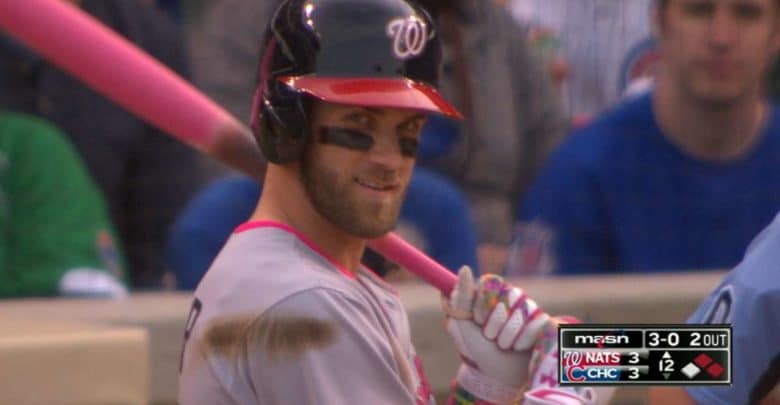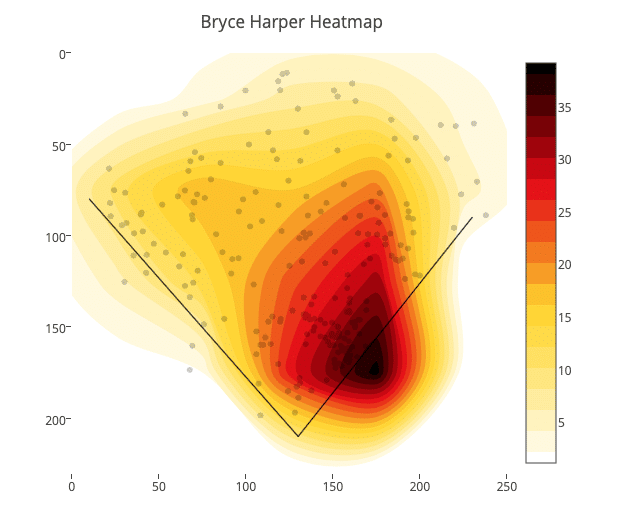
You Shouldn’t Care About Bryce Harper’s Low 2018 Batting Average
I’ve already heard it over and over…and over again. People don’t want the Cubs to go after Bryce Harper because he ended 2018 with an underwhelming .249 batting average.
Hits are good, no doubt about it, but batting average doesn’t tell the whole story. There’s so much flukiness in baseball that makes average seem more chance than skill at times. Like, I lost a game of MLB The Show to my roommate because he had a flurry of infield hits and bloopers in one inning that reminded me of how the Cubs lost several games in 2018.
But because batting average is the most commonly available and understood measure of offensive performance, Harper’s inability to rack up hits in 2018 is going to bug people. Should it? No, and not just because he was still an on-base monster all year (.365 first-half OBP, .393 all season).
Most of his struggles came in the first half of the season, when the former MVP recorded an underwhelming .214 mark. Perhaps Harper’s “struggles” (he still had a .244 expected batting average, so he was slightly misfortunate) were due to a pull-heavy approach. Just look at how many pitches he pulled hard in the first half of 2018.

Once the weather warmed up and Harper began to hit his stride — who says the Home Run Derby ruins your swing? — he started taking pitches up the middle and to the opposite field with authority. That was a big part of him hitting .300 in the second half.

There are reasons to be wary of signing Bryce Harper, but batting average shouldn’t be one.


